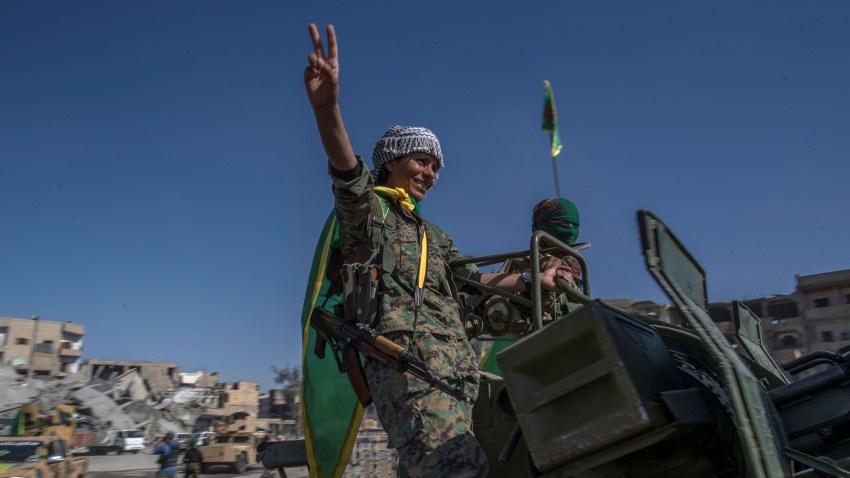Loading your audio article
Many popular accounts of women’s experiences during war exoticize and decontextualize female fighters, while underscoring women’s vulnerability and victimhood at the expense of their agency. Though academics have long pointed to the shortcomings of these narratives, they have persisted in much of the popular media coverage of women in conflict.
For instance, reporting on women who joined ISIS in Iraq and Syria still often refers to them as “jihadi brides,” as though they are harmless groupies following “real” jihadists, rather than acknowledging the possibility that they are active and ideologically driven participants in a violent movement. Many women fighters in Sierra Leone and Angola were similarly labeled and treated by government officials and international NGOs as “dependents.”
Narratives depicting women who have participated in armed insurgencies as less political—and less important—than men can have high costs. For example, women are often ignored or forgotten during post-conflict demobilization and reintegration programs, in part, perhaps, because these narratives affect how international, nongovernmental and local organizations view them. In the cases of Sierra Leone and Angola, the “dependent” classification meant that many women did not receive benefits—such as cash, support for education and help procuring work—provided to combatants. Without reintegration assistance, some of these women end up relying on illicit work, including sex work, and living in poverty. This is particularly true of women who may not have weapons to surrender, despite the fact that many women take on a mix of armed and unarmed roles during conflict.

